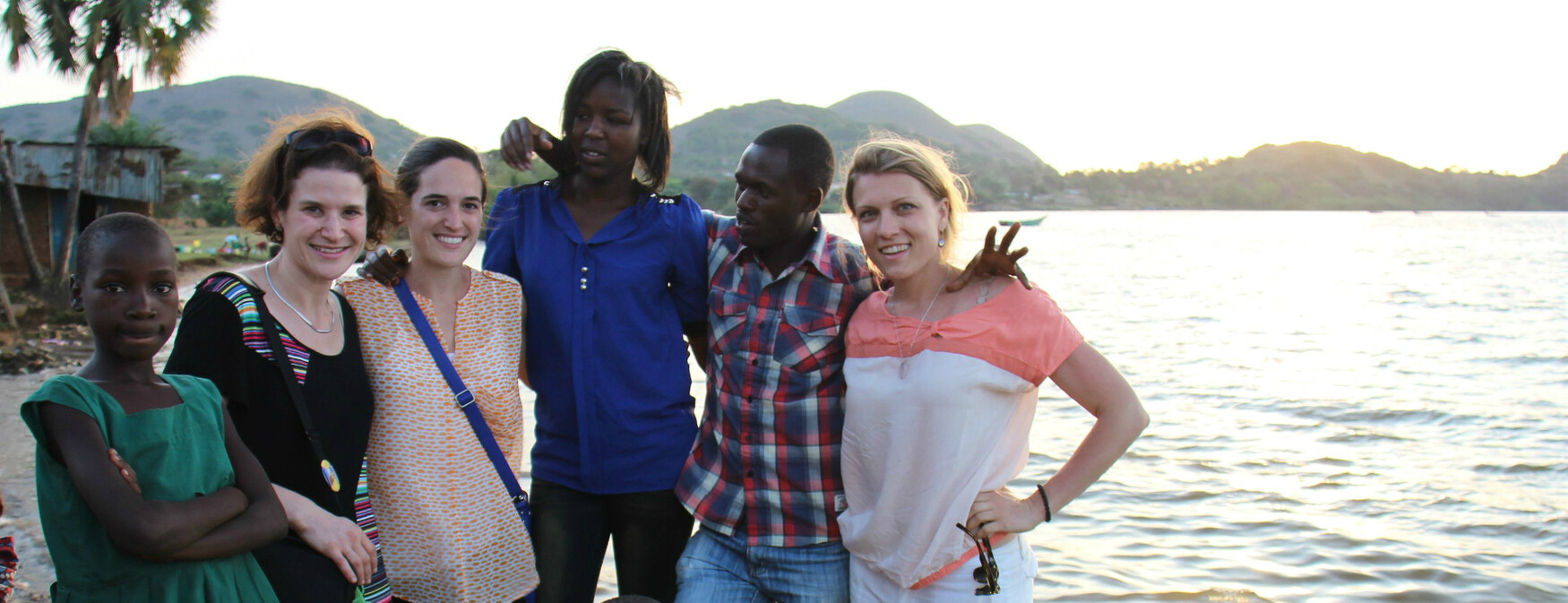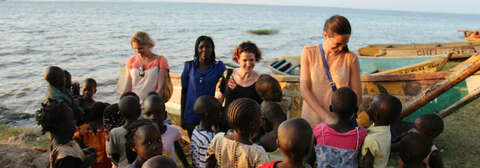Mobile Menu
- Education
- Faculty
- Research
- News & Events
- Divisions
- Equity, Diversity & Inclusion
- About Us

Julie Thorne, MD

Dr. Julie Thorne, one of our residents and Master's of Public Health candidate at the Harvard TH Chan School of Public Health, recently visited Kenya as part of her studies.
Here is what Julie writes about her experience in Eldoret:
"It is the dry season right now in Kenya. Well, one of two dry seasons, the other occurring sometime midsummer. This means in many areas the grass is brown and the dirt is light and, well, dusty. Ten minutes outside meant I too became dusty and my clothes quickly turned rust-coloured. We all joked about it. Never before have I appreciated how useful and important a shoe-shiner could be on one’s way to work, and at times my road to work was lined with them.
Even in the dry season Kenya is beautiful and I feel extremely grateful to Ana Langer, the Maternal Health Task Force, and the Harvard School of Public Health for supporting and facilitating my return there this Winter Session as part of the Field Experience in Maternal Health course. In my other life I
am a resident in Obstetrics and Gynaecology at the University of Toronto and it is through my department there I have a relationship with AMPATH (Academic Model for Providing Access to Healthcare) in Eldoret, Kenya. I have long admired the program because of its commitment to a respectful bilateral partnership where local and international academic professionals and trainees all participate equitably in learning, teaching, practicing medicine, researching, publishing and leading with the goal of improving the health of all Kenyans in the region.
My three weeks in Eldoret were packed with interesting research, new learning opportunities, conversations, new and old friends, good food, and a bit of travel. My main project involved piloting a retrospective chart review at the Riley Mother Baby Hospital (MBH) at Moi Teaching and Referral Hospital to measure the pre-eclampsia disease burden and the associated maternal and neonatal outcomes. I had always viewed the retrospective chart review as a relatively simple research methodology and learned instead there is a science to doing it properly and that having poorly organized and inconsistent charting can make a big difference in data collection. Vincent and Sheila, the research assistants I was working with and mentoring, were champs taking in a whole new medical lingo they were not familiar with; together we troubleshot the hospital file system.
Co-led by Julia Songok, Laura Ruhl and Astrid-Christoffersen-Deb, the AMPATH-RH (Reproductive Health) and the Maternal Neonatal Child Health (MNCH) groups have some other really fantastic programs in the woodworks. I was able to tag along and absorb as much as I could from them. USAID funds many of the programs in the region and it has its own criteria and indicators that the facilities they fund need to adhere to. I attended meetings on coordinating patient flow in new USAID-funded health facilities, on indicator and outcome reporting for Quarterly Reviews, and on coordinating Commodity Reporting in order to access from USAID the commodities (like medications) the MNCH programs require.
I attended a workshop by Jacaranda Health (based in Nairobi) on Lean Maternity and reducing waste in our health facilities. I found myself reading the Kenyan constitution and environmental health laws to contribute to a large community-based grant application the team was writing while I was there. I trucked out to Bunyala on Lake Victoria to observe a Chama Cha Mama Toto meeting; these groups are now in their third year and combine maternal health education and microfinance with the aim to improve healthcare access and financial security for women. These community groups are by women, for women, and are wicked awesome. I really feel like I had exposure to the whole spectrum of the academic approach to public health delivery in a developing region.
There isn’t enough room in this blog post to go through the sites, smells, tastes, and people I interacted with. I am grateful to my big-hearted and brilliant hosts Liz Nolan- Greven and Michael Greven and our conversations on orphans and city infrastructure. I hope Julia, Justus, Vincent and the Sheilas will be around with the MNCH team when I go back to Kenya. I hope three weeks was enough to foster a lasting connection with Caitlin Parks, with whom I found so many things in common. Rachel and Astrid are just stuck with me as a future collaborator, and I think they know that. As I finish typing this with a view of the recently dropped snowbanks in Boston, I definitely find myself missing the plums and passionfruits, the gentle Kenyan manners, the hot African sun, and…well, ok, fine, maybe not the dust."
